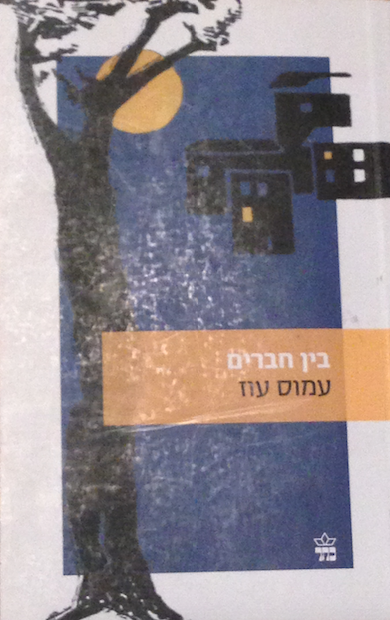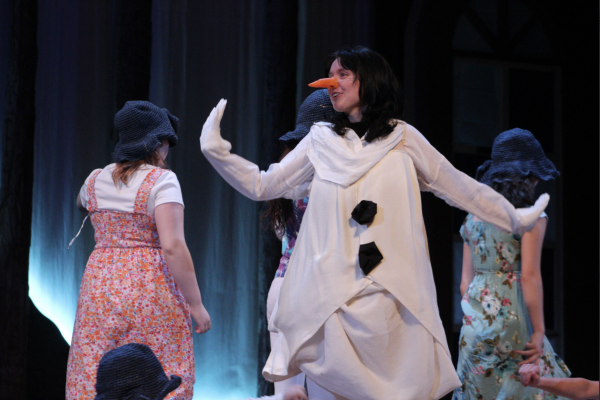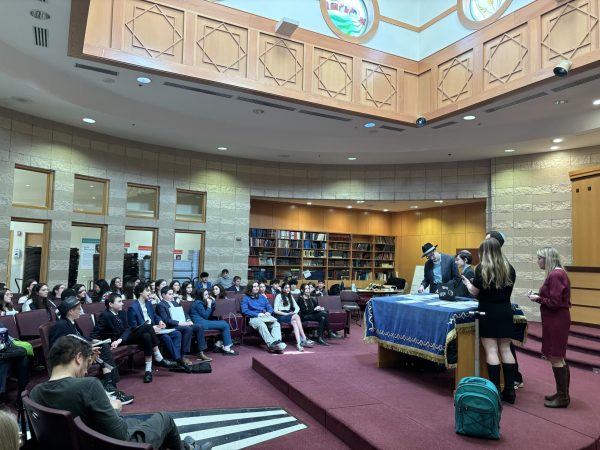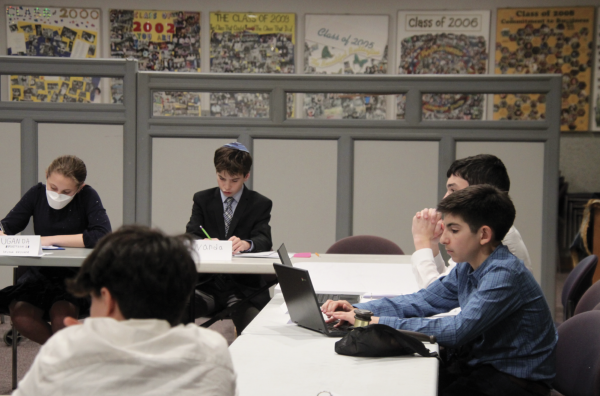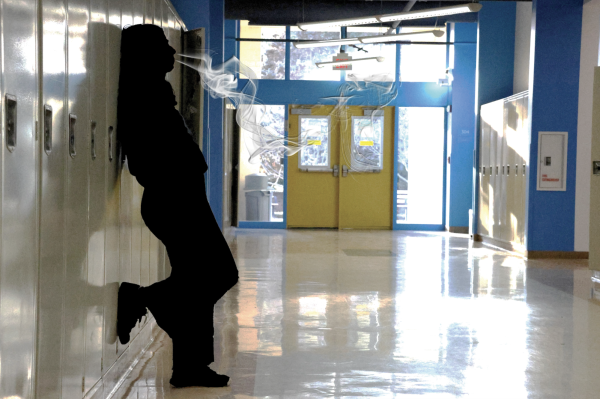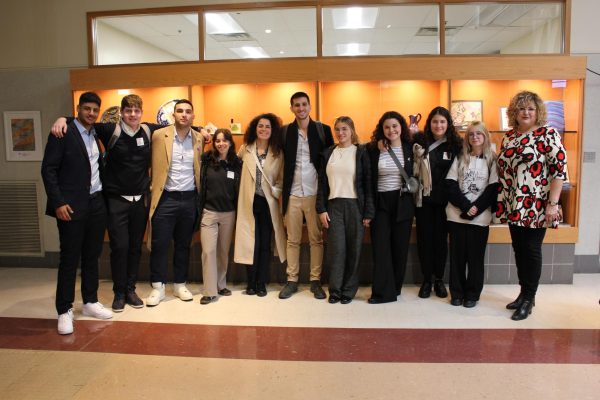Avant Assessment Hebrew Test: a step to strengthen the Hebrew curriculum
In the current Hebrew curriculum, students read books to practice their vocabulary and comprehension skills. This book, studied by juniors, is comprised of short stories in Hebrew.
February 17, 2016
CESJDS students in grades five to 10 are in the process of taking the Avant Assessment Hebrew Test to gauge each student’s proficiency in reading, writing, listening and speaking.
Students are taking the test as part of a multi-year retooling of the Hebrew department. JDS is redesigning its Hebrew department to meet the aims set by the American Council on the Teaching of Foreign Languages (ACTFL). ACTFL’s goal is to enhance and expand the teaching of world languages in America.
The test is unique in that it adjusts mid-test based on how a student is performing. If a student gets the first few questions correct then the subsequent questions get progressively harder, while if the student is struggling then the questions will get easier.
Each day students will take one of the four parts of the test. After all four parts of the test are completed, Avant will send an individualized report to the school about each student, saying where students succeed and where they need work. JDS will use this information to change and improve the curriculum.
Hebrew leveling next year will be based on students’ test results, teacher recommendations and past grades in Hebrew classes.
“Over the course of time we will be able to track a student’s progress … which will allow us to learn more about how students learn and where they need individualized attention and also help us hone our curriculum,” Dean of Academics Aileen Goldstein said.
The Hebrew department has been mentored throughout the year by Hebrew at the Center, an organization that helps to improve Hebrew education by strengthening teaching styles. One of the department’s mentors mentioned the test to Hebrew teachers Hannah Rothschild and Ortal Wikoff and encouraged them to use it as a way to improve the Hebrew program. These two teachers brought the idea to Head of School Mitchel Malkus who was also in support of the test.
“[Rabbi Malkus] felt that this was a wonderful way to enter this new phase that we’re in,” Rothschild said.
Earlier this year, Hebrew teachers spent two school days in meetings where they discussed how the Hebrew curriculum could be improved in the years to come. The Avant Assessment will be used to help strengthen the department, but the adjustments will not come all at once.
“We don’t want to make too much of a transition, that would be very difficult,” Rothschild said. “We want to ease into it.”
While the specific changes in the Hebrew department are still being determined, it is likely that there will be new and different Hebrew levels. Each grade will have its own curriculum, but depending on the class will be taught the material at different levels.
Students are taking the test now instead of at the end of year, because scheduling happens in the spring, and students must be placed in their Hebrew levels before scheduling can happen. Additionally, teachers will have more time to reboot the curriculum using the test results, instead of only doing it over the summer.
Sophomore Matan Lieber-Kotz said that he thought testing the entire school was a good idea, but he does not think it was executed well because of many technical problems that have arisen due to the test. He does want to see improvements in the curriculum.
“I’d like to see a more mature curriculum,” Lieber-Kotz said. He said that right now a lot of the curriculum is similar to things that he did in the Lower School, and that he would like that to change.
Improving the Hebrew curriculum is happening in the same year that the sixth grade will come into the Upper School.
“It’s a good time to do it all, because we are transitioning a whole new group of kids [the sixth grade],” Rothschild said. “We are creating a whole new structure for our middle school. Everything worked well.”
JDS plans to continue giving the test to students in the future so that the school can test students’ progress and the progress of the school as a whole.
Another change in the Hebrew department’s teaching strategy is to treat Hebrew more similarly to the way in which other world languages are taught in schools, rather than as a completely different subject. While Hebrew will naturally have a greater importance at a Jewish school, the department is working on treating the language itself differently than they had previously.
“It’s the language of our people, and it’s our connection to Judaism, [but] there are also other components to it,” Rothschild said. “It’s how to communicate in Hebrew. It’s how to communicate the culture in Hebrew.”


